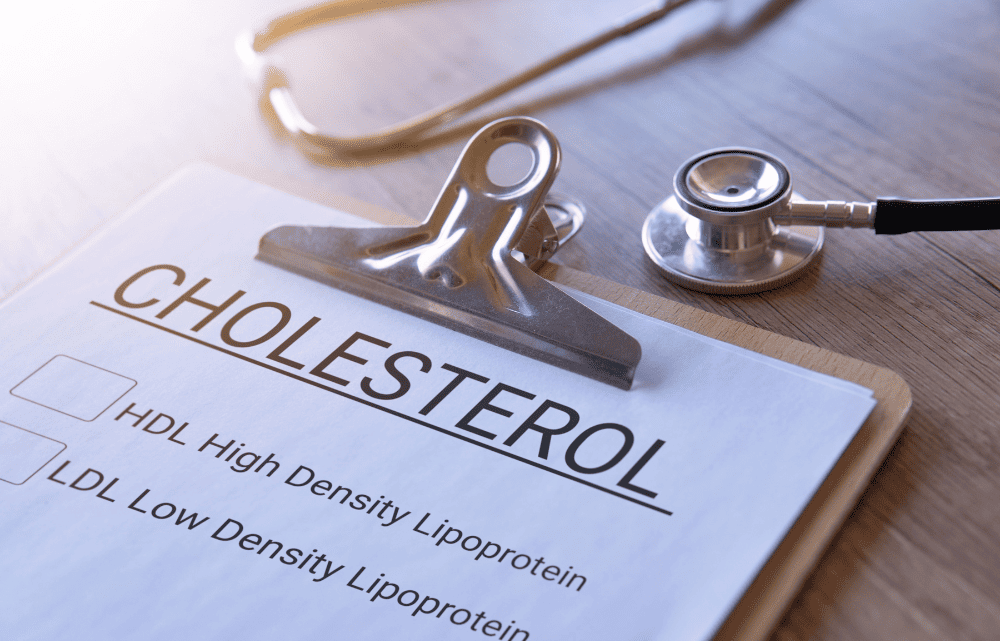Cholesterol is one of those health concerns that many people have heard of but few truly understand. It’s an essential substance that your body needs to function, yet too much of it can quietly put you at risk for serious conditions like heart disease and stroke. Even more concerning is that high cholesterol often comes without any warning signs. That’s why staying informed and proactive is key.
Here’s what you need to know about high cholesterol and how you can take control of it.
What Is Cholesterol?
Cholesterol is a waxy, fat-like substance found in your blood. Your body needs cholesterol to build healthy cells, produce certain hormones, and support the digestive process. While your liver naturally produces all the cholesterol you need, the foods you eat, especially those high in saturated and trans fats, can contribute to elevated levels.
There are two primary sources of cholesterol: your liver and dietary intake. When too much cholesterol builds up in your bloodstream, it can begin to clog your arteries, increasing your risk for heart-related complications.
Types of Cholesterol
Understanding the different types of cholesterol is crucial for managing your levels effectively. LDL cholesterol, often called “bad” cholesterol, contributes to the buildup of plaque in your arteries. When these plaques harden, they narrow the arteries and limit blood flow.
HDL cholesterol, or “good” cholesterol, helps remove LDL from the bloodstream, carrying it back to the liver where it can be broken down and removed from the body.
Triglycerides are another type of fat found in your blood. When elevated, they can also contribute to the development of arterial plaque, especially when paired with high LDL and low HDL levels.
What Causes High Cholesterol?
Several factors can lead to high cholesterol, and many of them are within your control. A diet high in saturated fats, processed foods, and added sugars is a major contributor. Lack of exercise also plays a role, as physical activity helps boost HDL cholesterol while lowering LDL.
Smoking damages blood vessels and lowers HDL, while excessive alcohol intake can increase triglycerides. Obesity, particularly abdominal obesity, is closely tied to unhealthy cholesterol levels.
There are also non-lifestyle causes, such as genetics. Familial hypercholesterolemia is a hereditary condition that leads to very high LDL levels from a young age. Certain medical conditions like diabetes, hypothyroidism, and kidney disease can also influence cholesterol levels, as can some medications.
Also Read: Setting Healthy Weight Loss Goals for the New Year: Key Strategies to Try
Why High Cholesterol Matters
High cholesterol might not cause any obvious symptoms, but it silently increases your risk for serious health conditions over time. One of the main dangers is atherosclerosis, a buildup of plaque in the arteries, which can lead to reduced or blocked blood flow.
This condition can cause a range of complications including heart attacks, strokes, and peripheral artery disease. The damage occurs slowly and often goes unnoticed until a major event happens. That’s why cholesterol treatment in Los Angeles and beyond focuses not only on managing current levels but also on preventing long-term damage.
How to Know if You Have High Cholesterol
The only way to detect high cholesterol is through a blood test, usually a lipid panel. This test measures total cholesterol, LDL, HDL, and triglycerides.
It’s recommended that adults have this test done every four to six years, though people with higher risk factors should be tested more frequently. A good rule of thumb is to discuss testing intervals with your provider, especially if you’re seeking the best doctor for high cholesterol or already working with a cholesterol specialist.
Once you receive your test results, your healthcare provider will help you interpret the numbers and determine if treatment or lifestyle changes are necessary.
What to Do If Your Cholesterol Is High
Lifestyle Changes
If you’ve been diagnosed with high cholesterol, don’t panic. Many people successfully lower their cholesterol through simple lifestyle adjustments. Begin by shifting to a heart-healthy diet. Focus on increasing your intake of fruits, vegetables, whole grains, legumes, lean protein sources like fish or poultry, and healthy fats such as those found in olive oil, nuts, and avocados.
Avoid or limit foods high in saturated fat, such as red meat, full-fat dairy products, fried items, and processed snacks. These choices can have a significant impact on your LDL and triglyceride levels.
Regular exercise is another powerful tool. Aim for at least 150 minutes of moderate activity per week, such as brisk walking, biking, or swimming. Exercise can raise HDL and help with weight loss, which in turn supports better cholesterol levels.
Quitting smoking and limiting alcohol are also important. These steps not only help lower cholesterol but improve overall cardiovascular health.
Medications
Sometimes, lifestyle changes alone aren’t enough, especially for individuals with genetic conditions or additional risk factors. In those cases, medications may be necessary.
Statins are the most commonly prescribed drugs and work by lowering the amount of cholesterol your liver makes. Other options include bile acid sequestrants, which help remove cholesterol from the body, and cholesterol absorption inhibitors, which prevent your intestines from absorbing too much cholesterol. PCSK9 inhibitors are a newer class of drugs often reserved for those who don’t respond to other treatments.
Your provider may recommend combining medication with lifestyle changes for the best results. If you’re searching for a cholesterol doctor near me, it’s important to find a provider who offers comprehensive care like Dr. Michael Bazel, a highly experienced cardiologist based in the city. Dr. Bazel also sees patients in Encino and Tarzana, making expert care more accessible throughout the greater Los Angeles area.
Setting Goals and Tracking Progress
Once you’ve been diagnosed with high cholesterol, the next step is setting personalized goals. Your ideal cholesterol levels will depend on a range of factors, including age, sex, family history, and existing health conditions.
Work closely with your provider to set realistic targets and develop a plan to reach them. Track your numbers over time to see how your efforts are paying off. Even modest improvements can significantly reduce your risk of cardiovascular events.
Staying consistent with your habits, taking medications as prescribed, and keeping follow-up appointments are all key to long-term success.
Empower Yourself Through Proactive Care
High cholesterol is extremely common, but that doesn’t mean it should be ignored. With the right combination of lifestyle changes, medications when needed, and support from a trusted healthcare provider, you can manage your cholesterol and reduce your risk of serious health problems.
If you’ve been wondering how to lower high cholesterol levels or looking for top cholesterol management tips, now is the time to take action. Whether you’re in Los Angeles, Encino, or Tarzana, expert care is within reach. Working with a cholesterol specialist like Dr. Bazel ensures you’re getting a tailored plan based on your unique needs and goals.
Ready to take the first step toward a healthier heart? Schedule a consultation with Dr. Bazel today and start your journey to better cholesterol management.


